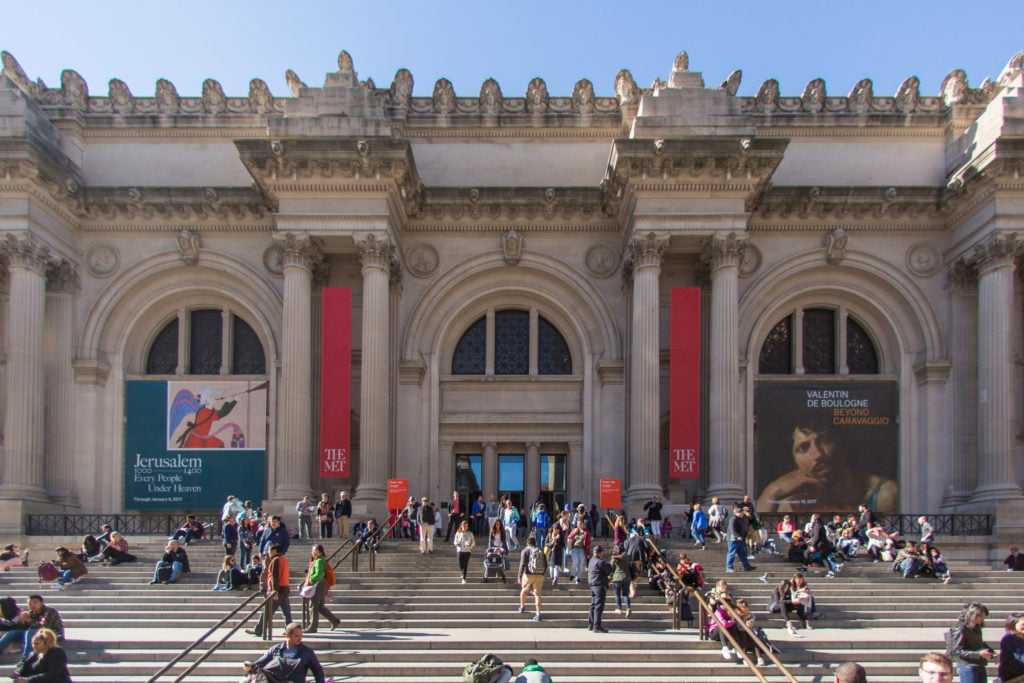Politics
The Met and Brooklyn Museum Opt to Reject Saudi Funds for Project as International Crisis Over Missing Journalist Intensifies
Riyadh funding for a new Arab art initiative is under the microscope.

Riyadh funding for a new Arab art initiative is under the microscope.

Eileen Kinsella

The Metropolitan Museum of Art and the Brooklyn Museum have opted not to accept Saudi funding for projects linked to a broader Arab art initiative, as the international outcry over the fate of missing Saudi journalist Jamal Khashoggi grows.
The Met’s president and CEO Daniel Weiss has informed participants that the event, which originally was partly funded by an organization linked to the Saudi prince, will now be entirely self-funded. “Collecting and Exhibiting The Middle East,” an invitation-only symposium scheduled for October 23, is part of the just-launched Arab Art & Education Initiative, an ambitious year-long, citywide cultural exchange program in New York.
“While this conversation and a subsequent public colloquium were to be supported by external funds, in light of recent developments we have decided that the Museum will itself fund this event,” Weiss wrote in a note to participants.
The amount of funding with ties to the Saudi government was a relatively minor contribution to the event (less than $20,000); the museum has also noted it does not receive significant funding from Saudi government sources.
The Brooklyn Museum has also decided to not to use Saudi funding to support the exhibition “Syria Then and Now: Stories from Refugees a Century Apart.” In a statement provided to the New York Times, museum officials said that although they “believe strongly in the value of culture to create bridges and build a more connected, civic and empathetic global community,” they have re-evaluated the decision to accept the money “in light of recent events and in harmony with the international community’s concerns.”
The Met’s symposium and Brooklyn Museum exhibition, both affiliated with the Arab Art & Education Initiative, originally received funding from the Riyadh-based Misk Art Institute, an initiative launched in 2017 under the auspices of Crown Prince Mohammed bin Salman bin Abdulaziz Al Saud and led by Saudi artist Ahmed Mater. (The initiative’s organizers have noted that only 15 percent of the yearlong project’s funding came from sources with ties to the Saudi government.)
Asked for comment on the museums’ decision, Stephen Stapleton, founding director of Edge of Arabia, the initiative’s lead organizer, told artnet News: “We are fully understanding and supportive of our partner organizations in the Arab Art & Education Initiative when it comes to decisions around funding and are delighted there continues to be a commitment from our partners to present open and free cross-cultural programming, as part of the initiative, here in New York City.”
The uproar over Khashoggi—who is believed to have been targeted and murdered by a Saudi hit team at their embassy in Istanbul—is having a disastrous impact on the country’s international relations and shining a light on Saudi funding abroad, including in the art world.
In an interview last month with artnet News, Max Hollein, the Met’s new director, said he would carefully consider the sources of the Met’s funding to make sure they were ethically sound.
“I think that it’s clear that if you are one of the leading museums in the world, if you have a very strong voice in the cultural discussion, that means that you have to have a morally sublime attitude not only about how the institution is set up, how it operates, how it is providing its services to the community, but also that its fundraising and funding is based on a clear set of values that we project,” he said. “And I have not seen the Met not doing that ever since I looked at it, but it’s clearly going to be a guiding principle for us going forward in the future.”
Update, October 18: Columbia University has now canceled a talk, titled “An Artist’s Lens on Mecca.” that was planned for October 22 with Saudi artist Ahmed Mater. Mater also serves as leader of the Saudi-funded Misk Art Institute. A representative for the university told The Art Newspaper it had not received funding from the Saudi government for this event, though it was organised in collaboration with the university’s Middle East Institute, which has received Saudi funding in the past. This article has also been updated to reflect the Brooklyn Museum’s decision.